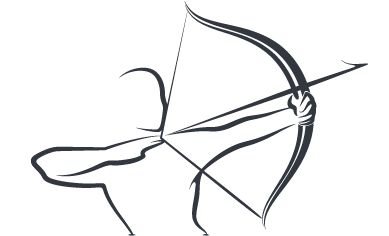Personality Development has been one of the prime areas of learning as well as of business. People have always been eager to excel in their personality. There has been a concept called 'The American Dream' which says that 'on the basis of being liked' one can achieve anything.
However, this was and again is a life belief for the US and most of the world now. What is there is being liked by others? Why do we toil and stay conscious of our Personality? What is Personality and what makes Personality?
What are the Elements of Personality? (I mean Components or ingredients- Personality is made of these)
There are several factors that contribute to our personality. These factors have received greater or less importance at the hands of different psychologists. Experts in the field and trainers give preference according to their own perceptions and understanding. For example, a gym instructor or a hairstylist will focus more on your appearance but a friend or elder will ask for improvement in your behaviour and thinking.
Motivational Speakers say that "YOUR MIND and THOUGHTS are important and a Health Instructor will demand full attention to your physical presence and appearance."
Here we shall discuss some of the important elements. These elements generally stated are:
- Personal Appearance
- Intelligence
- Emotional Life
- Temperament (Way of Looking at Things and Feeling/Opinions about things)
- Character and Moral Traits
Some of these elements are congenital while others are acquired. The latter is determined by environment and education, the former is not so determined.
- Personal Appearance: The size and shape of a person influence his personality. If a man is tall, of good physical proportions, and well-muscled, his personality is likely to be affected favourably. He is likely to be respected by his fellows and popular with them. A physical “deviant” on the other hand, has his own 'personality' problems. By a ‘deviate’ we mean someone who varies or deviates considerably from the average. A person who is very small, very tall, too fat or too thin is a deviant. Being a deviate lessens the feeling of confidence and personal worth. It is true that there can be a relationship between physical development and certain personal attitudes, especially in the case of deviates. But the fact is that no one can judge personal and intellectual qualities by physical appearance.
- Intelligence: Intelligence is an inborn capacity to perceive the right thing, at the right place, at the right moment. It is the general mental adaptability to new problems and conditions of life. Intelligence is certainly an asset. It enables easy adjustment even under difficult circumstances and thus helps in building up personality. Intelligent people are able to adjust themselves to changing environments with great ease, efficiency and speed and hence they are said to have a good personality.
- Emotional Life: The core of the emotional experience is feeling. When feelings violent and the composure of our mind is disturbed we have no longer feelings but emotions. Emotion is thus nothing but an intense and violent feeling. Emotions play a very important part of the individual and social life of man. They determine to a very great extent his physical and mental health. They also determine whether a person will be liked in society or will be treated as a nuisance. Emotions are to be sublimated. They should not be repressed. Repressed emotions give us complexes which further lead to disintegrated or maladjusted personality.
- Temperament: The man may be a rational animal, but at times he is extremely emotional also. The intense and violent feeling is an emotional long drawn out emotion is a mood. Mood when it becomes permanent influences our temperament. Temperament is partly physical and partly mental. Diet and climate also affect our temperament and temperament affects personality. Differed types of temperament have resulted in different types of personalities:
(a) Choleric Type He is also known as the violent type. He is energizing, full of ambition and courage but easily excitable to anger.
(b) Sanguine Type He is active, cheerful and optimistic in his pursuits.
(c) Melancholic Type He is humble, sad, depressed and pessimistic.
(d) Phlegmatic Type He is slow, dull and unemotional. He is also known as ‘apathetic’ or ‘indifferent type.’
Cyril Burt holds that the majority of the cases belong to the mixed-type- Thus, there is considerable overlapping of these temperaments.
- Character and Moral Traits: The character is the sum of all tendencies, which the individual possesses. It is the organisation of instincts and habits under the sentiment of self-regard. If this organisation is strong, the character is strong. It is weak, the character is weak. Character includes our sentiments and habits in the widest sense of the term. It is the product of the interaction of instinctive dispositions with the physical and social environment under the guidance of intelligence. Character and the personality of the individual are very closely related.







